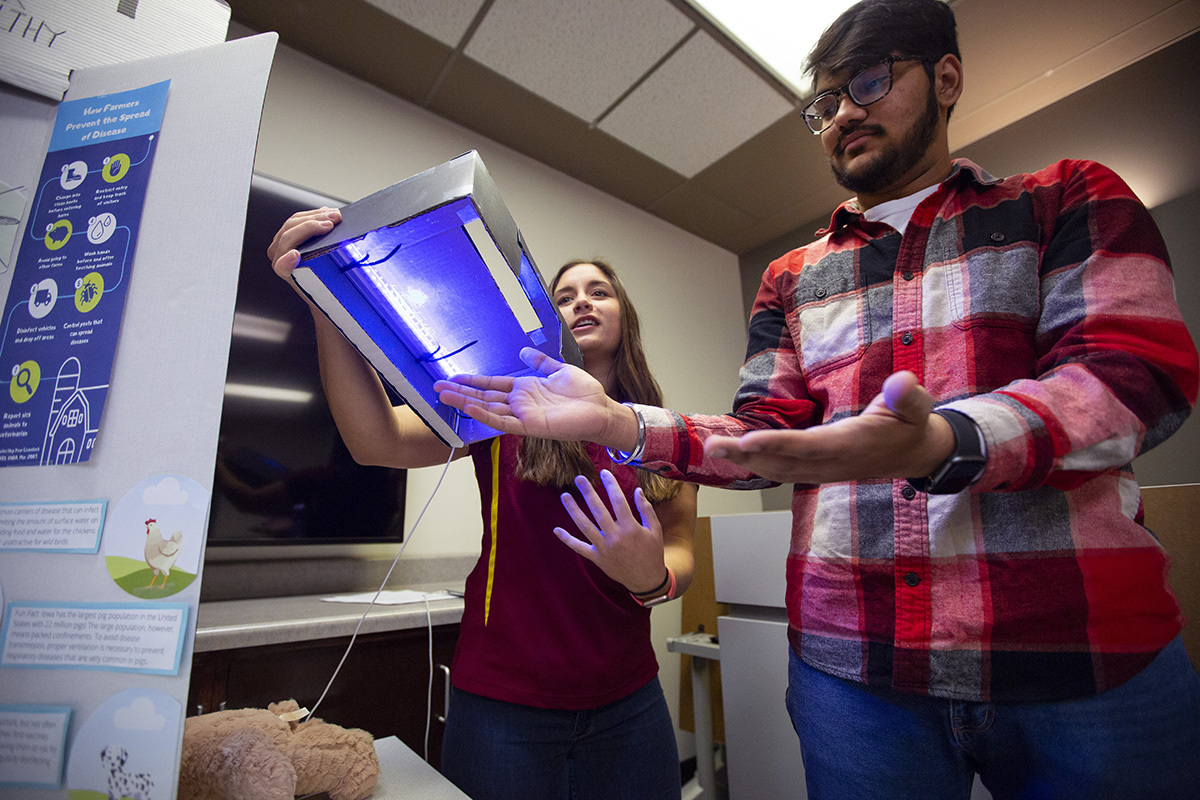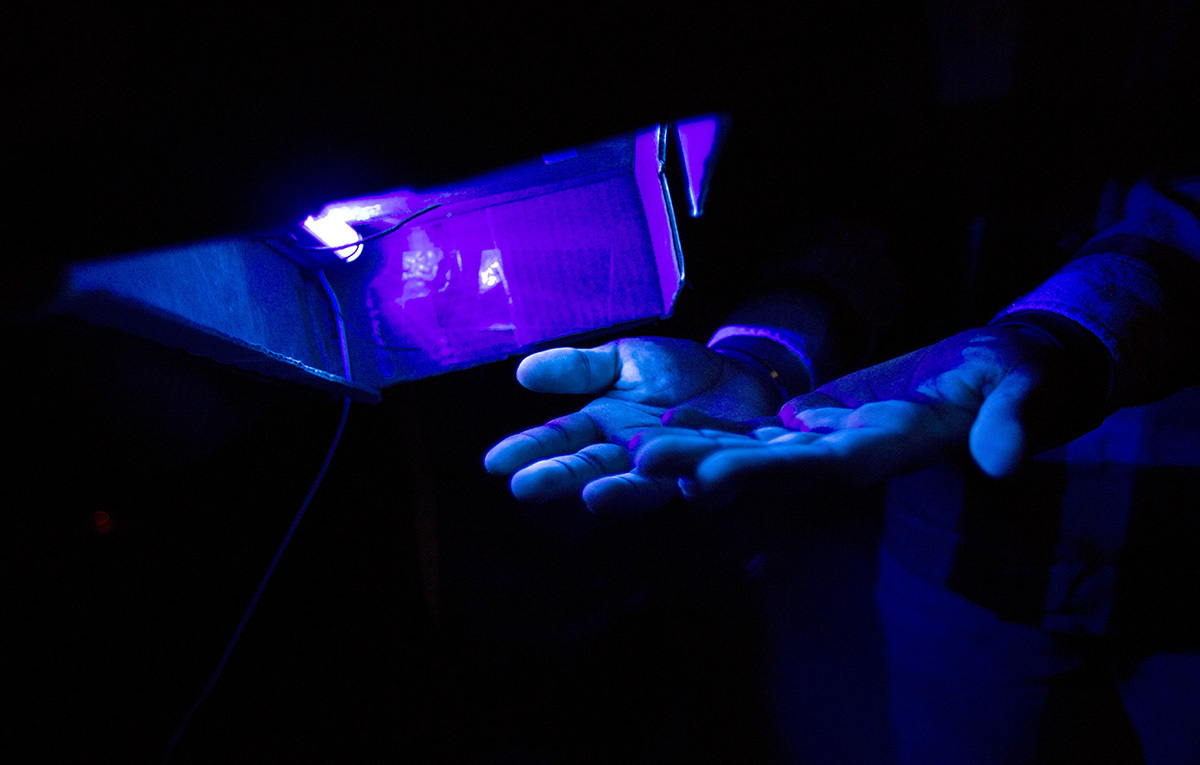
Kayla Elmore, left, uses an ultraviolet light to detect a biosecurity hazard on the hands of classmate Vishesh Bhatia during a presentation in class. The presentation will be a part of the upcoming "Science with Cy" event at the Ames Public Library. Photos by Christopher Gannon.
Science with Cy presentations
- Biosecurity: How to keep yourself and animals healthy
- Blood: How blood is a lot like your favorite superhero
- Fire Ecology: Why fire isn't always a "villain"
- Heredity: What you're made of, including traits like eye and hair color
- Microbes: How creepy-crawly microorganisms become world travelers
- Superconductors: How to make magnets float in air
- Social animal behavior: How to communicate like an animal
- Coral reefs: The many wonders of the world's coral reefs
Final exams are little more than a week away, but for students in an English 312 Biological Communications section, their biggest test may come Saturday.
Twenty-two science majors will attempt to explain topics within their fields in interesting ways to youth and their families during the inaugural "Science with Cy" event at the Ames Public Library. Presenting a project to their peers is nothing new for many of these students, but trying to get -- and keep -- the attention of a young audience for five to seven minutes can elicit a completely different feeling.
"It is 50-50," said Vishesh Bhatia, a senior genetics major. "It is exciting because at the end of the day you get to teach young individuals who are going to be the future of this country. The nerve-wracking part is making sure they understand it all. That is always the hardest."
Knowing the audience
The eight presentations, designed for middle schoolers, are the first for most of the ISU students, and they want to avoid using too many technical terms while keeping it fun. That will be accomplished through interactive elements that draw in the audience. A fire tornado, liquid nitrogen and ultraviolet light are some of the things that will be used to explain and educate. Scientist Cy, the event's headliner, also will be there.
To prepare, each presentation group practiced in front of their classmates and graduate students, receiving feedback and adjusting accordingly.

Kayla Elmore, left, uses an ultraviolet light to detect a biosecurity hazard on the hands of classmate Vishesh Bhatia.
"Constructive feedback is always helpful," said Bhatia, who will present on heredity and genetics. "This is about Iowa State's message of reaching out to a bigger audience, and not just limiting ourselves to ISU students. This is part of going out in the community, serving the community and educating the community."
Bhatia hopes to inspire those in attendance to think of science in a different way.
Larger meaning
Emma Murray, lecturer in English, came up with the idea of Science with Cy as part of an effort by the department to find new ways to engage students. The class is one of a series of advanced communication courses in ISUComm, which emphasizes written, oral, visual and electronic communication competencies.
If you go
What: Science with Cy
When: 2-3:30 p.m., Dec. 7
Where: Farwell T. Brown Auditorium, Ames Public Library, 515 Douglas Ave.
Cost: Free
"We are trying to put together a standard curriculum that will work for all sections," said Jenny Aune, associate teaching professor in English and director of ISUComm advanced communication. "All of the current instructors are trying new things to see what students react to and like. Emma came on this idea of reaching multiple levels of audience while maintaining the accuracy of the original ideas, but you have to change the frame and narrative for the audience you are working with."
Aune hopes science fairs become part of the class each semester. One section is participating this semester, but the practice could expand to all sections in the spring.
The presentations put students in situations that may be uncomfortable, but Aune said it often leads to improved confidence in an area many students underestimate themselves. Communication skills -- and the ability to use them effectively regardless of audience -- will benefit the students throughout their careers.
"In advanced communication, we are always telling them to imagine you are writing to a certain audience," Aune said. "But that whole 'imagine' thing is hard to do. Not everyone can envision all of what the audience believes and what their needs are."
This puts the students front and center with a fun twist.
